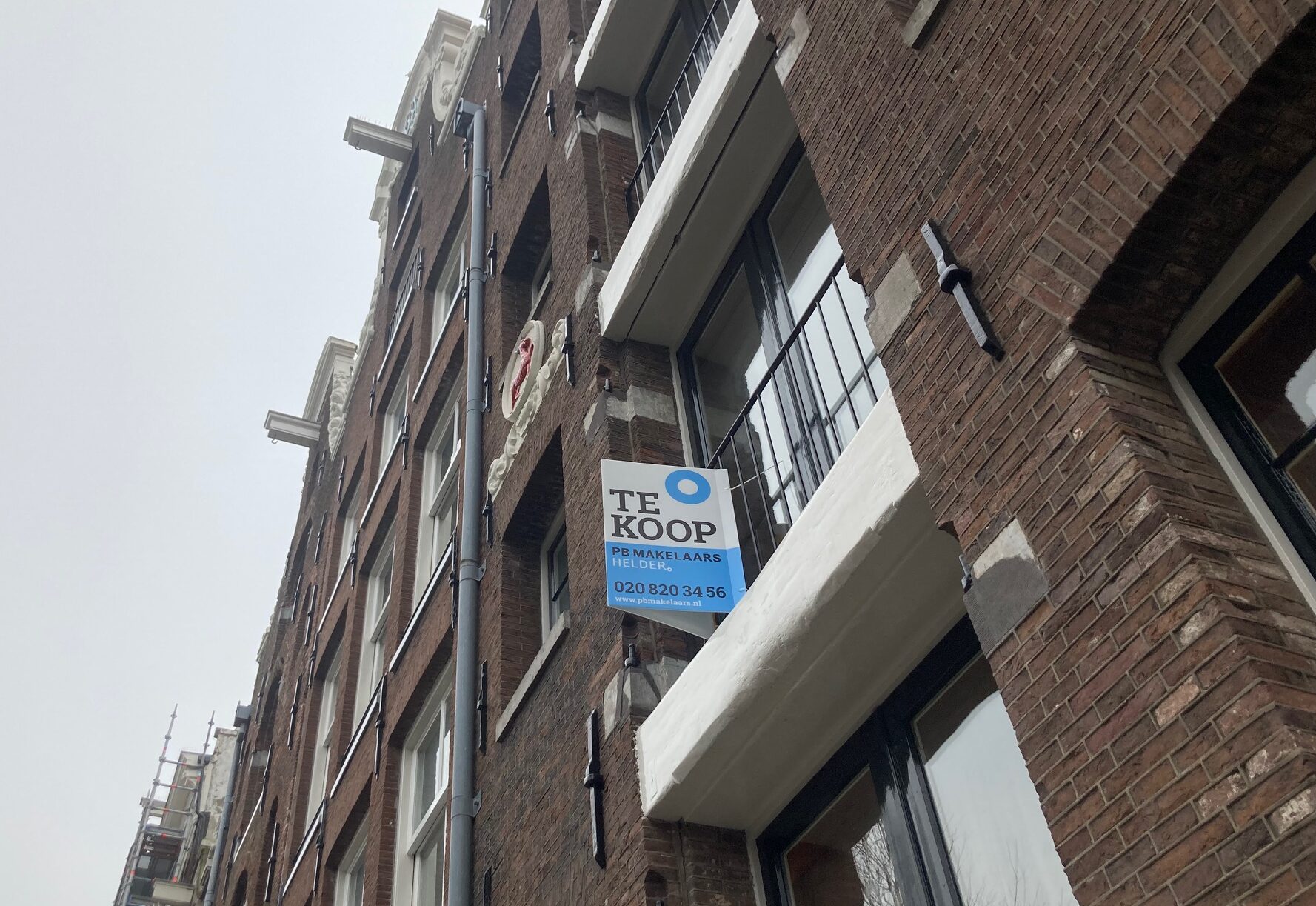Did you know you can borrow less for a mortgage this year? Government advisers have quietly reduced the maximum borrowing factor for 2025 and mortgage brokers have noticed.
If your salary didn’t rise – as in many freelance or contract jobs – you cannot afford to buy the same house as last year. And that’s even before sellers and estate agents put on this year’s price tag.
Why didn’t you hear about this? Because the Netherlands is on a merry roundabout of deceiving itself about its housing market.
In Amsterdam for example, the council has decided it is internationals and the companies employing them that are responsible for the widespread sense nobody can afford to live in the capital any more.
But here’s the thing nobody says. The Dutch government could nudge a few switches to freeze house prices or reduce them by 5% or 10%. (The Economist suggested last year in a “back-of-the-envelope calculation” that a 40% drop would reflect the true value of Amsterdam property, given the physical risks of climate change.)
Second salary
In 2023, the former housing minister Hugo de Jonge removed one of the last brakes on lending. Previously, you could only account for part of a second partner’s salary to get a mortgage. The Nibud household budget institute says before 2012, a second income was not counted at all.
Even if both partners worked, if one lost their job or needed to work less, for whatever reason, the other could pick up the slack. The Nibud called this an “implicit buffer” and it has been removed. It could be put back. If the second salary were counted at 90%, as it was before 2023, mortgage capacity would go down. House prices would follow.
Limit lending
Another knob to turn is borrowing levels. The reason Dutch houses are so expensive is because people (are allowed to) borrow so much money. The Netherlands has Europe’s highest borrowing compared with GDP – almost 100%. This doesn’t just mean money which could be used to fund economic activity and scale-ups goes into dead bricks.
It is also risky: if couples separate, a health crisis strikes or jobs are lost, there is a big monthly bill. If prices correct, you can’t just sell your house and escape the debt – if the house is sold for less than your loan, you still have to repay “restschuld” debt.
In the Netherlands, top earners can borrow 5.5 times their salary and up to 100% of a home’s value (or even 110% for energy-efficient renovations). If the government limits these lending factors, house prices will react.
Tax break for homeowners
And finally, there’s tax. Last month, for the fifth time, the European Commission told the Dutch to “reduce incentives for debt-financed homeownership.” The hypotheekrenteaftrek mortgage deduction, which gives people with mortgages lower tax than renters, was scrapped by most countries decades ago because it skews the market, increases debt and reduces rental supply.
In fact, everyone in the Netherlands could pay 1.5% less in income tax if that €8.9 billion were not used each year to subsidise home ownership.
The next budget could reduce this tax break for everyone or perhaps scrap it entirely for houses over the average price or salaries over the Balkenende (top salary) norm. Stopping excessive borrowing would let some of the air seep out of the Netherlands’ housing bubble.
Build more homes
Because, despite public perception, the NVM estate agent association found that just 1.8% of houses in the Netherlands were sold to internationals in 2024 – and around 10% to 12% in Amsterdam.
Of course, the real solution to a housing shortage is building but this does not happen immediately. It’s going to take years for measures introduced recently to take effect. And right now, partly due to the number of single-person households, the Netherlands has a “shortage” of some 400,000 homes.
In the meantime, don’t blame the internationals for problems created by Dutch government policy. Three dials could be turned tomorrow to make Dutch homes more affordable – if there is political will to do so.
